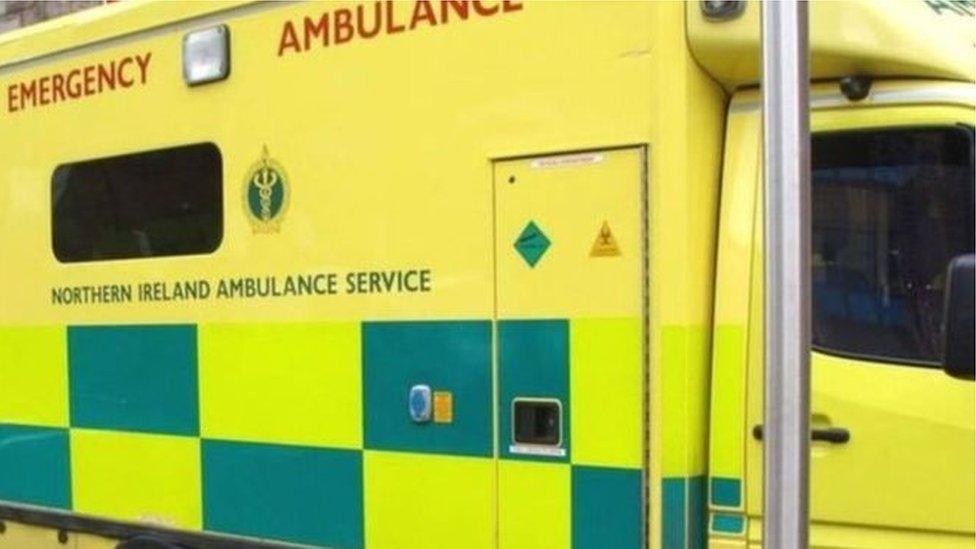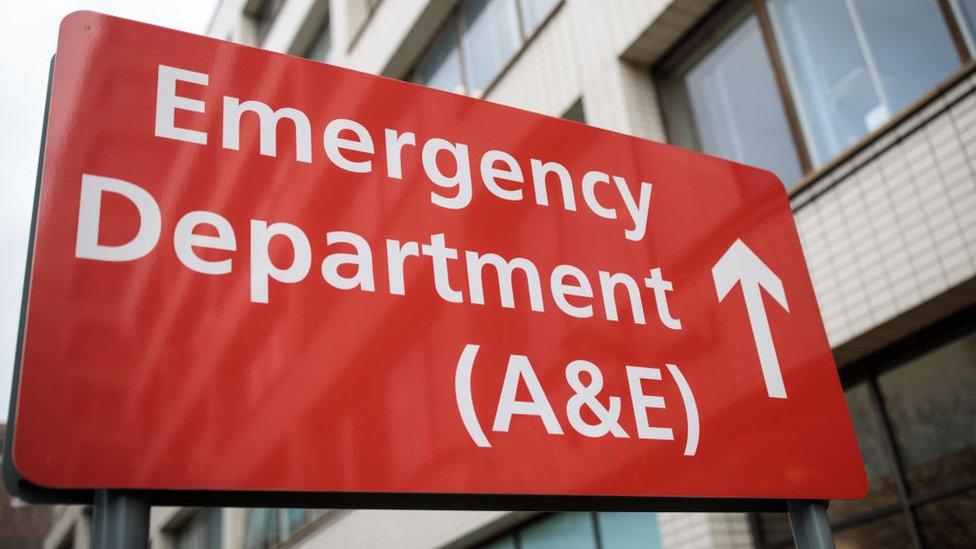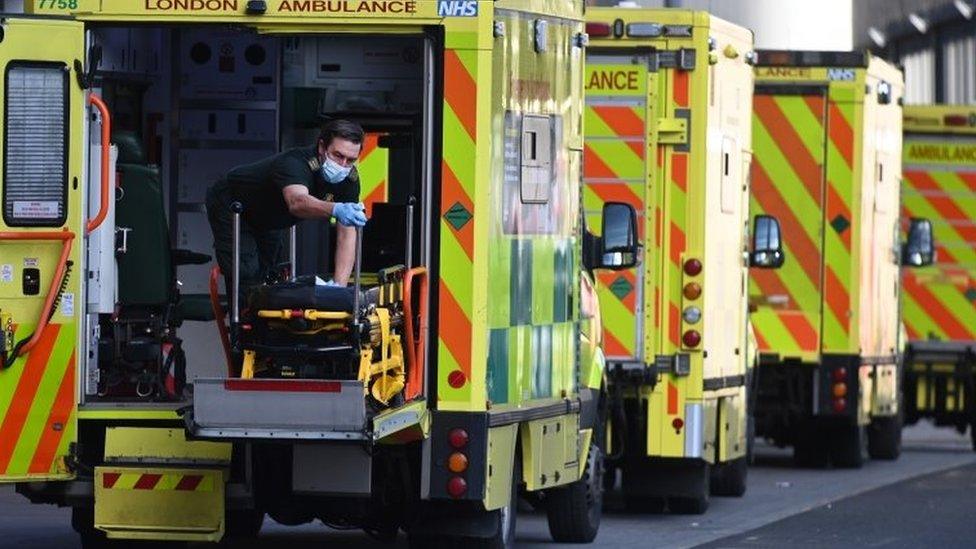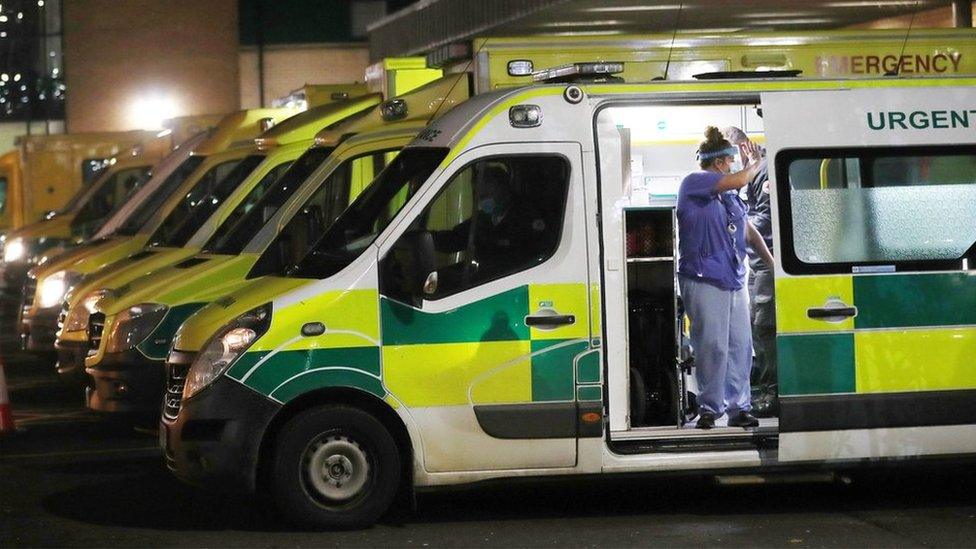Ambulance response times in NI may be delayed 'by hours'
- Published

Ambulance response times may be delayed "by hours", the Northern Ireland ambulance service (NIAS) has said.
It is under extreme pressure due to a combination of staff shortages and an increase in 999 calls, according to NIAS assistant director Brian Snoddy.
"I have been in the ambulance service for almost 40 years and this is the worst I have known," he said.
However, they will continue to prioritise the most vulnerable patients, he added.
Speaking to BBC Radio Foyle's News at One, Mr Snoddy said: "This is far short of the service we want to be providing in normal circumstances and I think everybody is aware of that.
"Delays and pressures throughout the system have that knock-on affect to our response time.
"These have been pressures from July last year and have been building throughout the Covid period," he explained.
Mr Snoddy said the pressures faced by ambulance crews are not isolated and are felt throughout the health care service.
'Heart-breaking'
Speaking earlier on Thursday, Dr Paul Baylis, a consultant in Emergency Medicine at Altnagelvin Hospital, said: "Emergency departments are essentially being overrun for quite some time now.
"It's heart-breaking for the staff because they are doing the best they can," he said.
Altnagelvin, in Londonderry, and the South West Acute Hospital, in Enniskillen, have issued an urgent workforce appeal for nursing and healthcare staff from Friday until Monday., external

Ambulance response times are divided into four categories:
A - Potentially immediately life-threatening
B - Serious but not immediately life-threatening
C - Non life-threatening/serious
C HCP - Transport requests received by a healthcare professional to transfer a patient to hospital

Mr Snoddy said response times will be affected due to current pressures, but all efforts are being made to limit their impact.
"We would hope to have response times in minutes, but we are seeing delays and it varies obviously through the day and by locality which can go into one, two, three or maybe even four hours.
"But our calls are being screened by our paramedics in the control room to reassess and we would urge people if their condition is getting worse to call back.
"We do have to say though, if it is not vitally important and urgent that you go to hospital, you may seek medical treatment elsewhere."
Mr Snoddy said the problem was due to a multitude of factors.
"When you get all of those pressures on top of Covid pressures, winter pressures, seasonal illness and increased social activity coupled with a shortage of staff throughout the service that all adds up," he said.
"It's the amalgamation of all of those issues, it's hard to pick out just one, but Covid has been a big game-changer here."
Related topics
- Published6 July 2021

- Published14 October 2021

- Published17 December 2020

- Published30 August 2021
